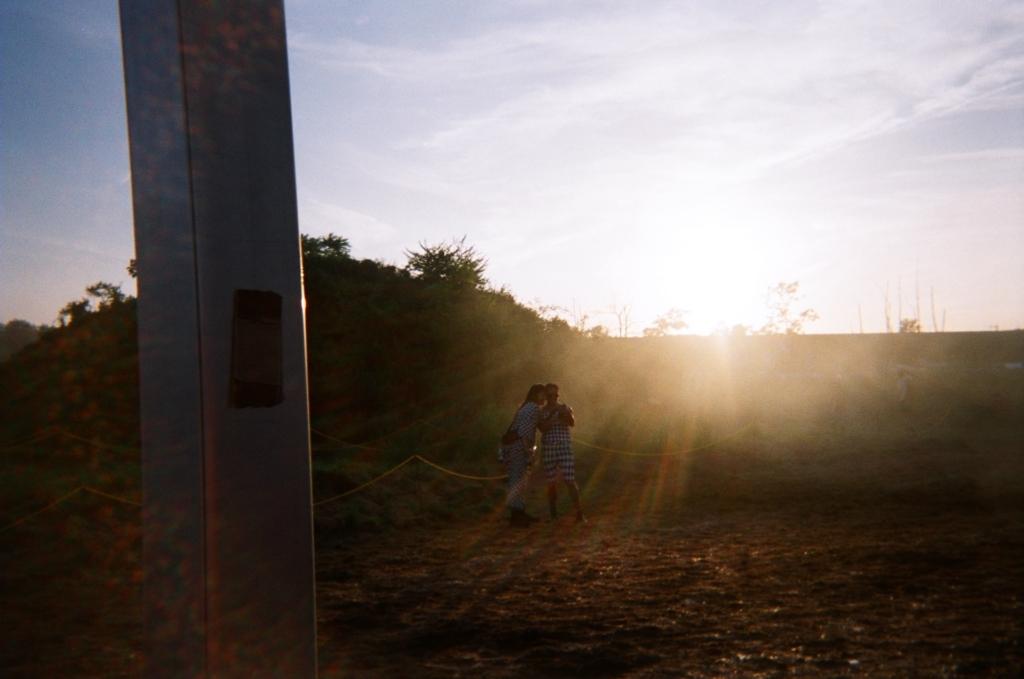Choose Transcendence: An inside look at Making Time ∞, Philly’s most daring music festival
In its fifth and biggest year, the experimental experience retained its identity: weird, personal, stubbornly DIY at heart.
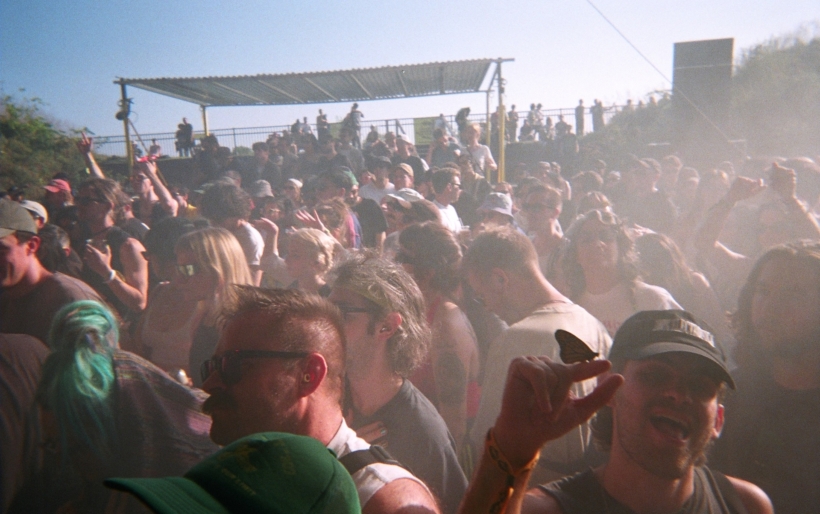
photo by Tess Wei
At Making Time ∞, transcendence is both a guiding principle and a lived experience. You see it plastered on signs across the historic grounds of Fort Mifflin – transcendental bathrooms, a transcendental wine cave – and you hear it echoed in conversations, half sincere, half ironic. But somewhere between dusk and dawn, whether on the main stage or tucked in the woods, the festival’s carefully-designed collisions of music, movement, and space make transcendence tangible.
This year’s edition of Making Time ∞, the three-day electronic music festival founded by Philadelphia DJ and curator Dave P., was its most expansive yet. The festival has run for five years, but grows out of a 25-year legacy: transforming two decades of underground club nights into a full-scale celebration of music and community.
In 2025, more than 4,000 people streamed into Fort Mifflin daily, filling its stone courtyards and grassy fields with sound. Six stages ran nearly around the clock, including a new one tucked down a winding path into the woods. There were food stalls and art installations, ambient bunkers and sound baths. And yet, despite the sprawl, the festival retained its identity: weird, personal, stubbornly DIY at heart.

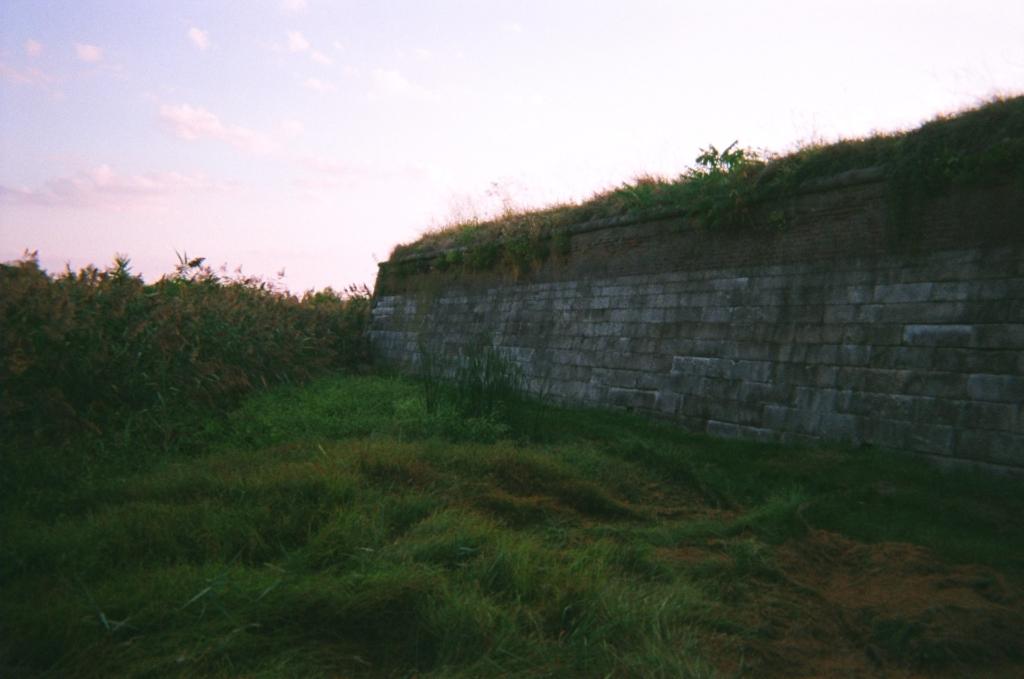
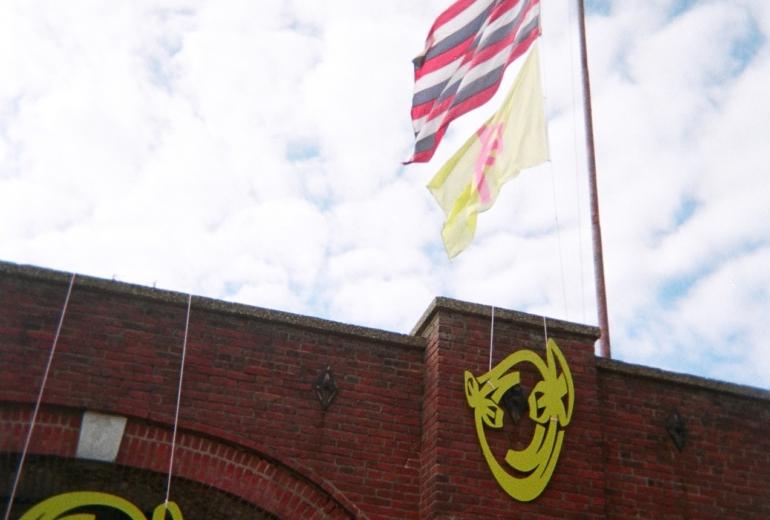
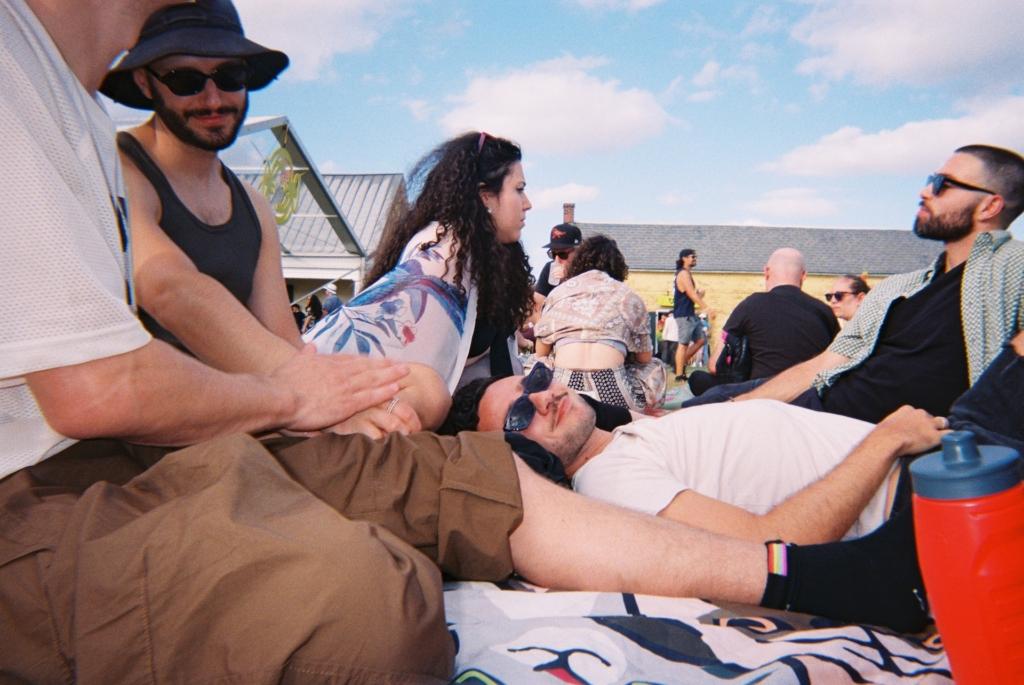

That character comes through most clearly in the people who attend. I handed out disposable cameras to artists, crew members, and fans for this year’s festival, asking them to document the weekend as they saw it. The resulting images – grainy flash portraits of friends crammed together in front of the fort’s massive stone walls, accidental double exposures of lasers streaking across the night sky – capture a side of the festival that polished press photos never could.
One cam returned with shots of friends grubbing on Pizzata Pizzeria, smooches in the grass, and dancers lost in the music. Other frames captured late-night spaghetti eating at the Meetinghouse Mess Hall, impromptu sunflower photoshoots, and the crowd moving as one under the stage lights. Flipping through them, you see what transcendence looks like when the official production fades: messy, joyful, and wonderfully imperfect.
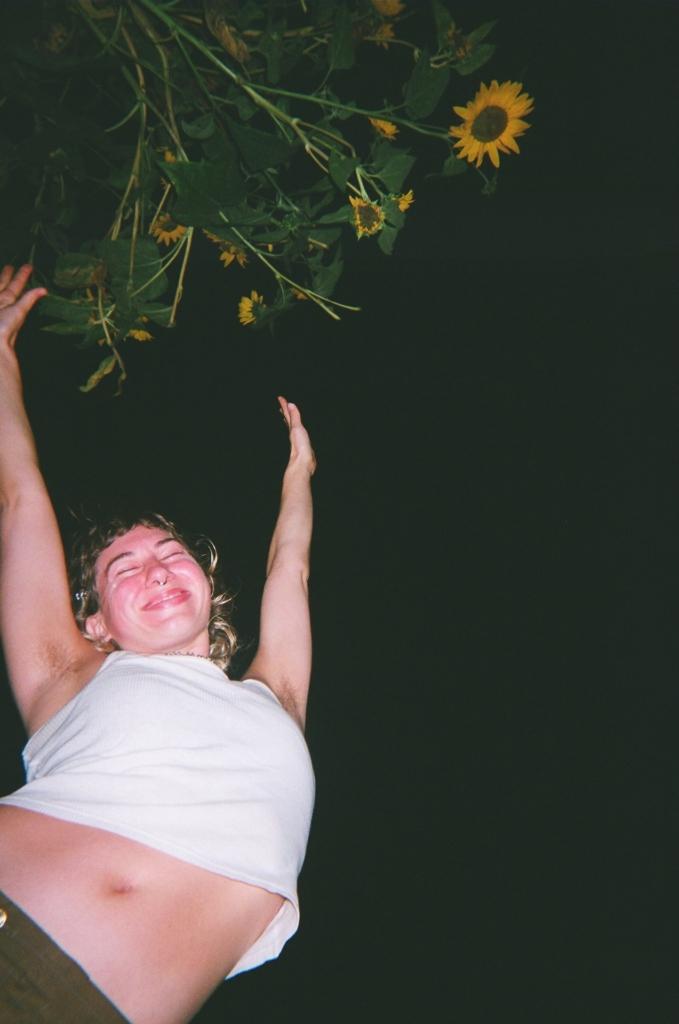
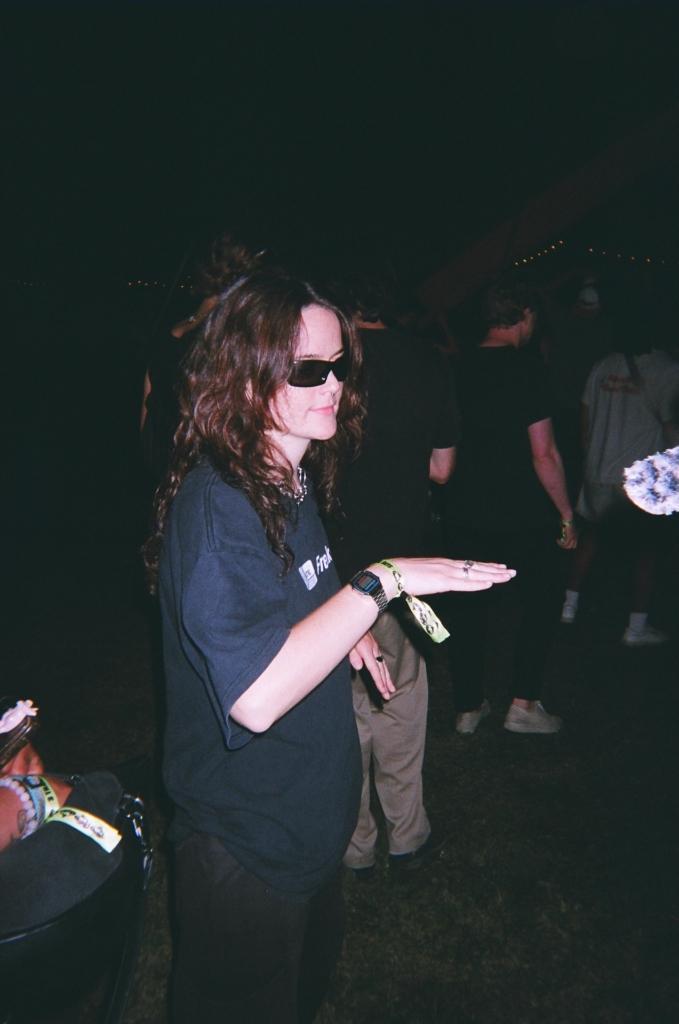
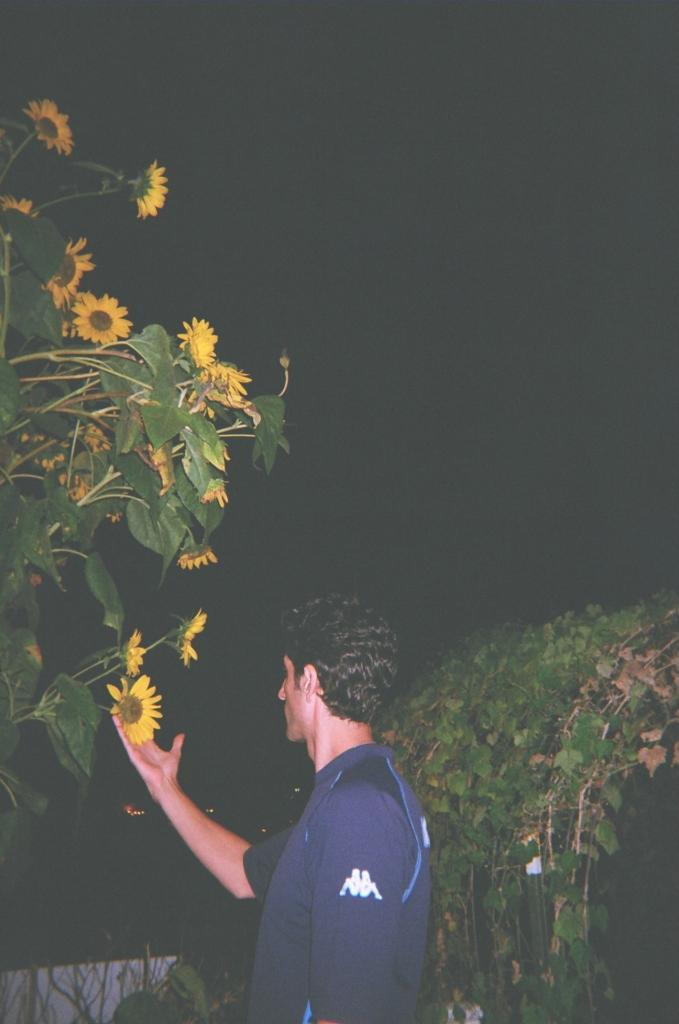
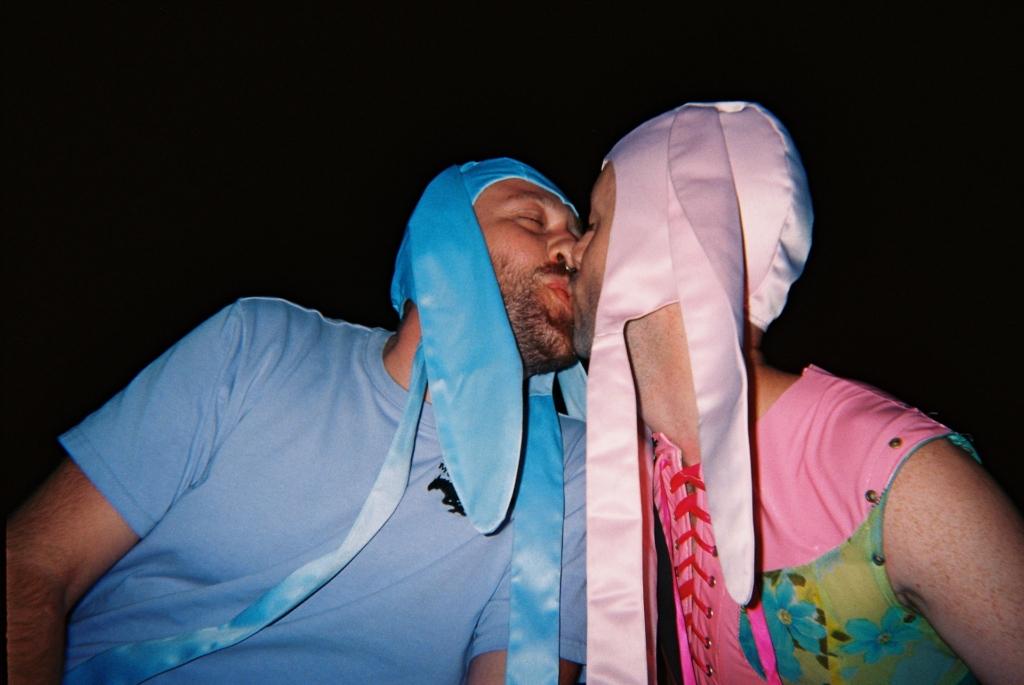
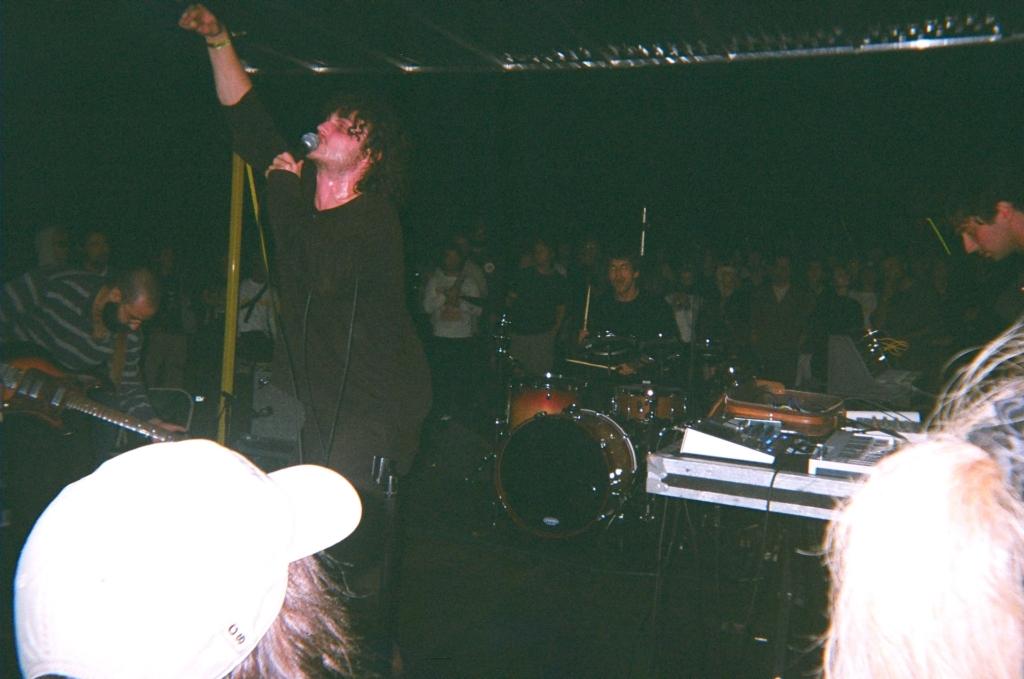
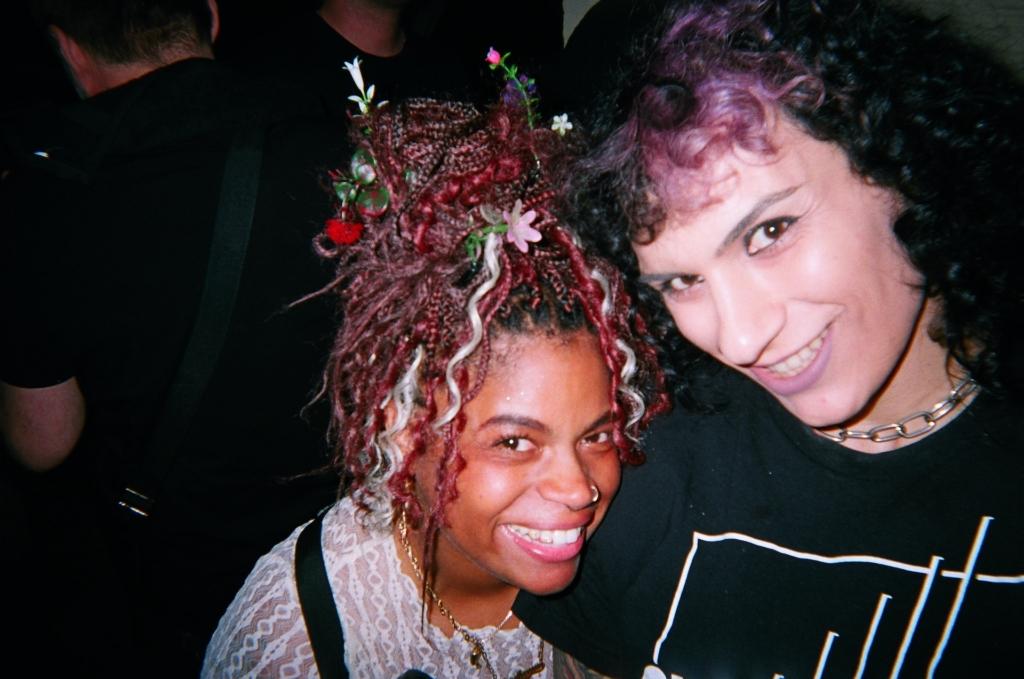

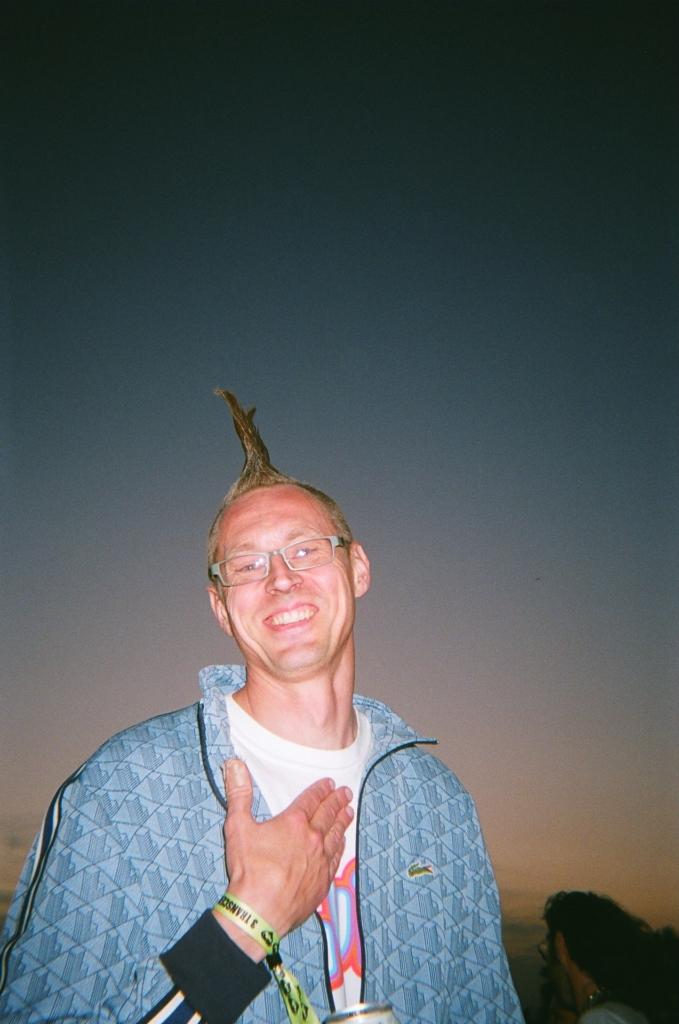
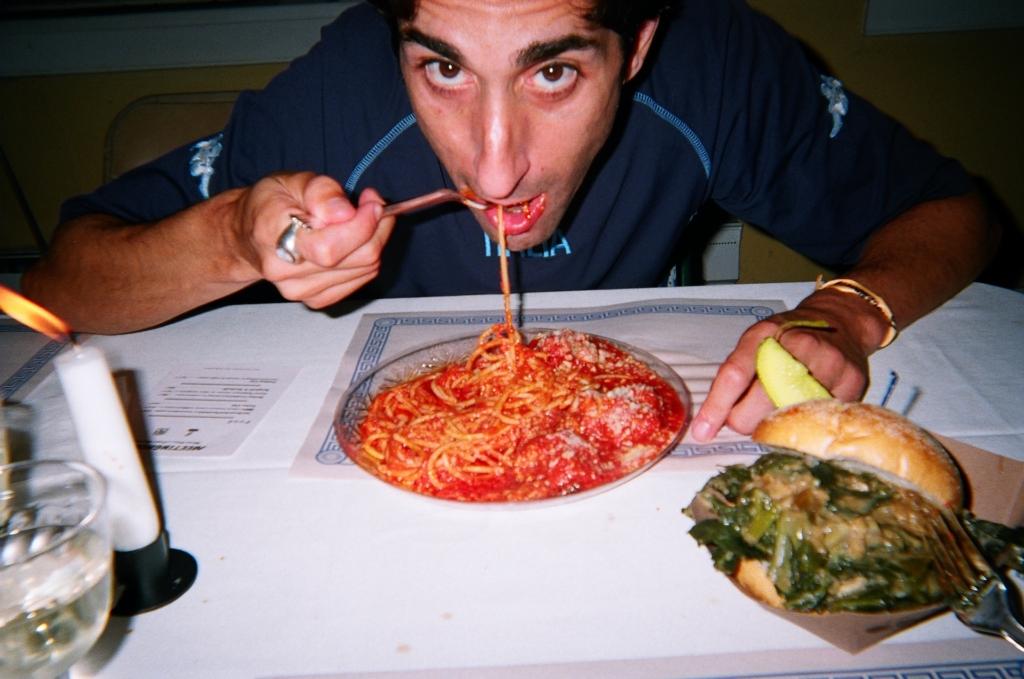
A festival that grew out of parties
Making Time has always been rooted in a sense of community. Dave P. began throwing the original parties in Philly in 2000, booking DJs and bands he loved and creating late-night spaces where people could lose themselves on the dance floor. By the time he launched the festival in 2020, he had already cultivated a loyal crowd that has only multiplied in the five years since.
Tess Wei, a longtime attendee and collaborator who documented the weekend with one of the disposable cameras, described the experience as “exceptionally transcendent.” They said, “What makes [Making Time ∞] so special is that, despite its international lineup and acclaim, it is still a grassroots endeavor powered by a small group of people. Dave P. and his team care deeply about every person who steps into Fort Mifflin, and almost everything is touched by the creative hands of Philadelphians.”
They added that the team’s attention to detail shows in how the festival adapts each year: “This year they mastered the venue’s flow by adding a new stage, opening more spaces to sit and gaze, and maximizing capacity while still keeping it spacious, safe, and full of room to groove.”
The festival’s ethos is codified in a single phrase: PLURT – “Peace, Love, Unity, Respect, and Transcendence.” It’s a guiding principle emblazoned across official communications and signage. Dave P.’s signature style infuses even small instructions with care and reverence, turning reminders and rules into moments that reinforce the festival’s sense of community and intentionality.
Sophia Costello, the festival’s artist liaison, has been involved since 2019. Reflecting on her first festival experience in 2021, she recalled a sunset set by Ela Minus and Kelly Lee Owens: “I remember crying my eyes out…I was just so overwhelmed with gratitude and joy, finally on a dance floor again, seeing two really strong, independent female artists do their thing on stage.”
Since then, Sophia has returned every year, growing alongside the festival and taking on a larger role behind the scenes. This year, she was excited to help run new spaces like the Bunker stages and Option 5 (more on that later).
“It’s been really cool to see Dave expand on the live and band aspect of the festival, giving local artists like Gee Dee’s FREE UNIVERSE, QRTR, and JEWELSSEA their first live sets, and offering performances you might not get anywhere else,” she said.
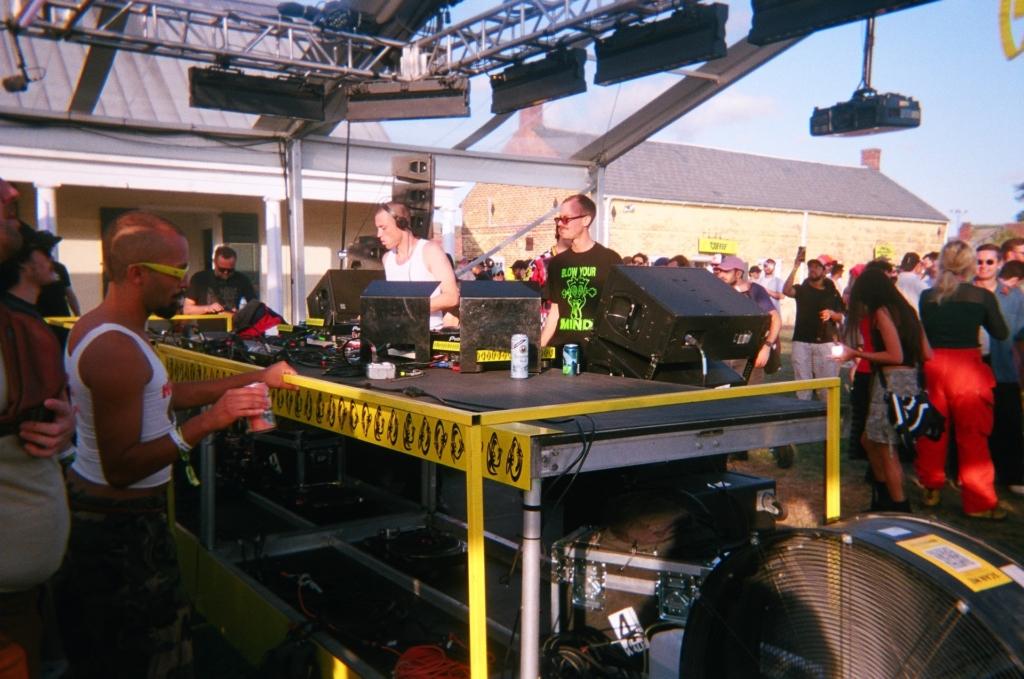
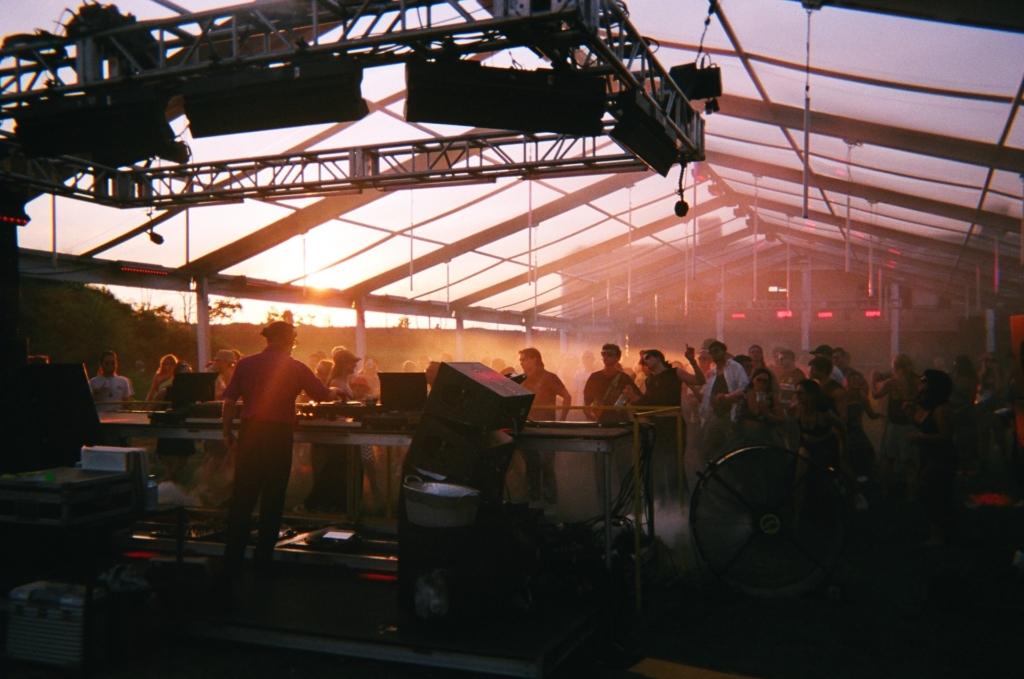
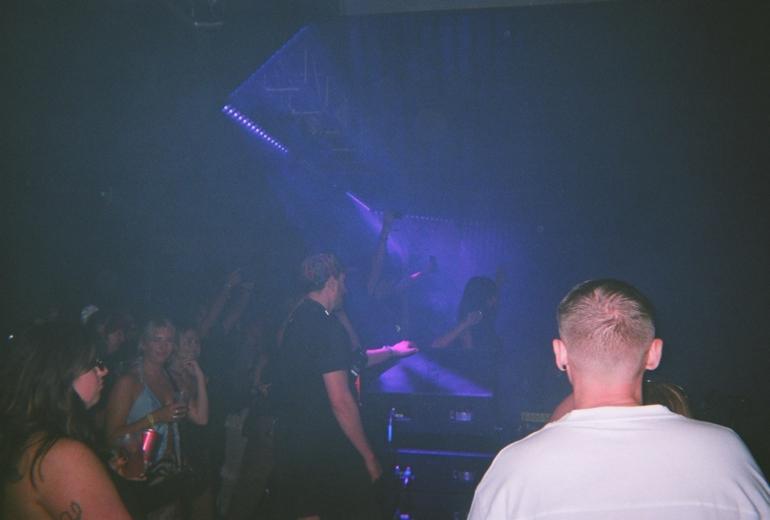
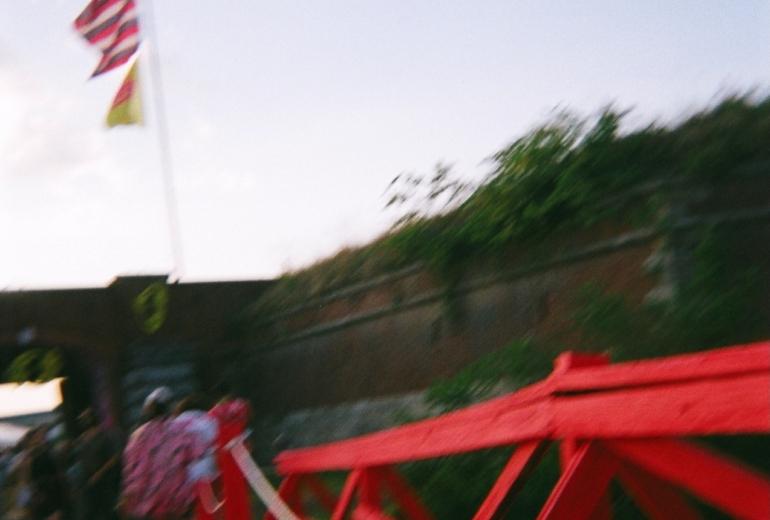
Sophia emphasized the thoughtfulness behind the festival’s growth.
“I don’t think anything is rushed. The pace of Making Time’s growth is intentional, and every new opportunity feels built to fruition exactly how Dave hoped. It’s inspiring to watch him continue to build the brand, giving people room to take risks, try new things, and fully participate in the festival’s unique vision.”
That philosophy shows up not just in the curation – which blends international DJs with Philly locals, live bands with ambient experiments – but also in the way the festival is built. The stages are sponsor-free, the production deliberately intimate, and every corner feels like it’s been designed with care. Even a logistical hiccup, like the closure of a heavily trafficked transcendental bridge on Friday night, became part of the weekend’s charm.
Reflecting on this year’s edition, Dave P. called it “the most MAGICAL weekend in Philadelphia in my lifetime,” highlighting aya’s “boundary-pushing live set,” Boy Harsher’s long-awaited appearance, and Jonnie Wilkes’ emotional tribute to JD Twitch among the weekend’s most transcendental moments.
If the heart of Making Time ∞ beats anywhere, it’s in the sets that stretch into the night, pulling thousands into sync. On the main stage, New York–based electronic duo Fcukers delivered one of the most raucous performances of the weekend. Shannon Wise and Jackson Walker Lewis, who played the Majestic Zone last year, returned with a full live set that spilled energy off the stage and through the crowd. Avalon Emerson followed with a precise yet euphoric set, weaving her production and DJ skills into a performance that propelled the night forward.
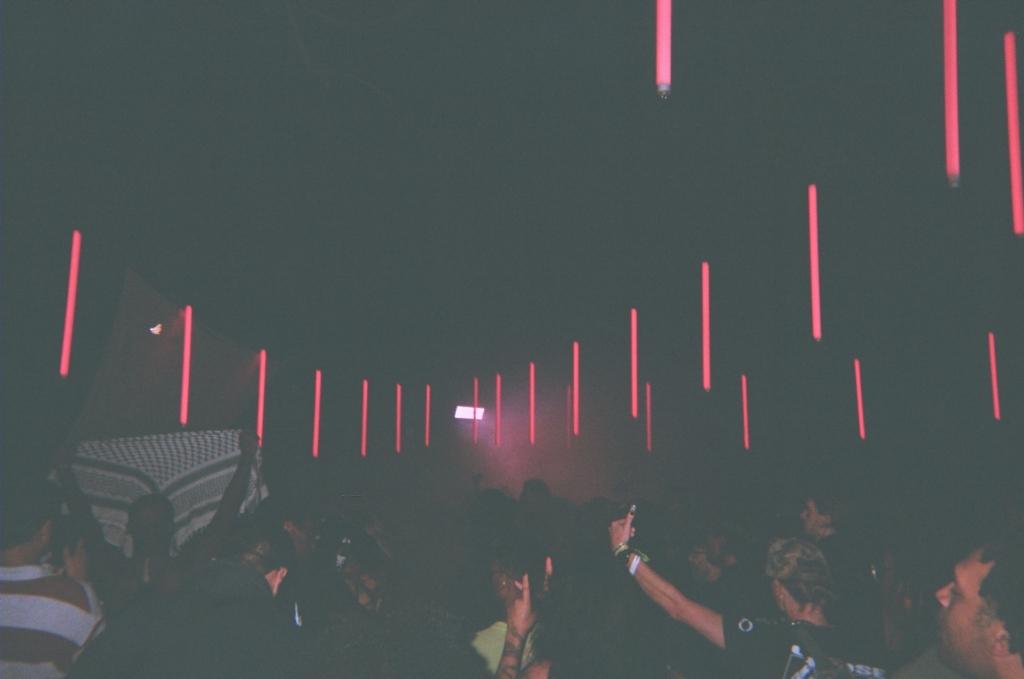
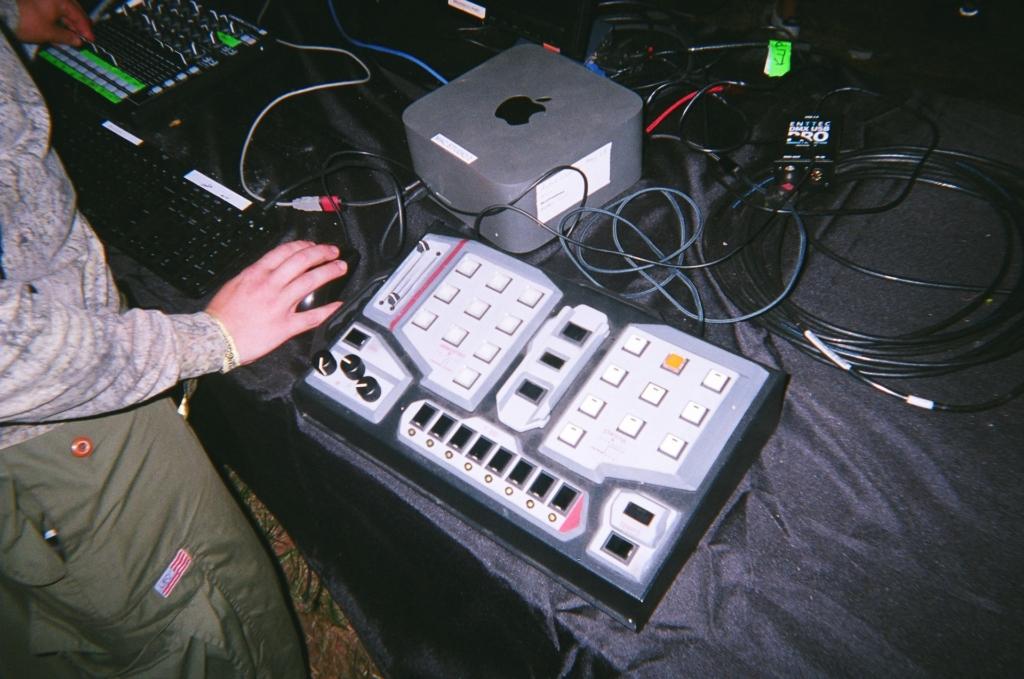
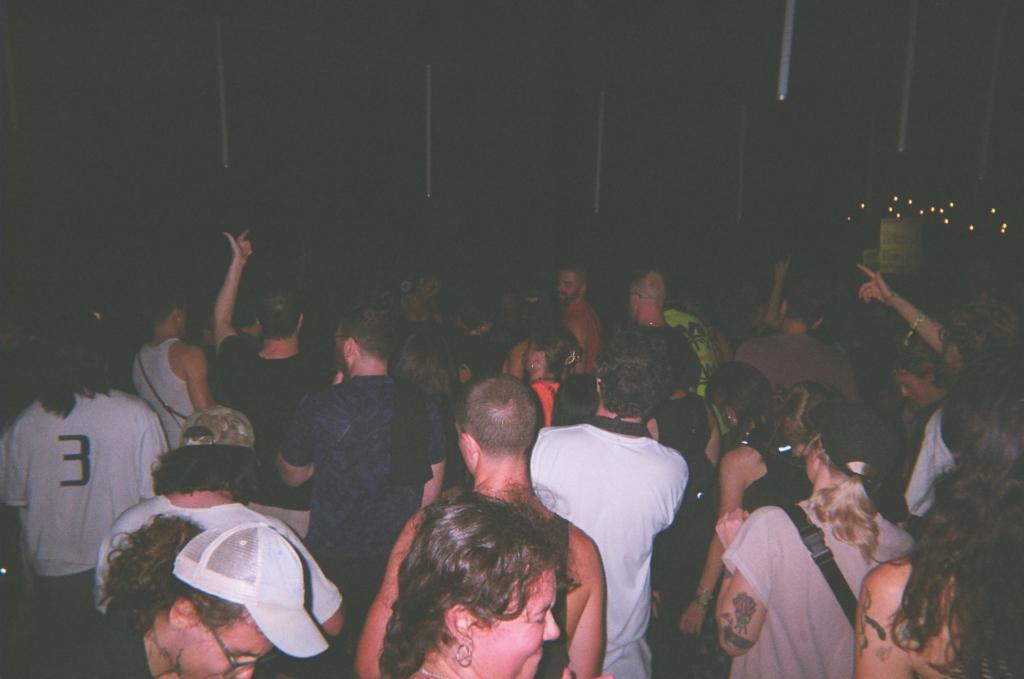
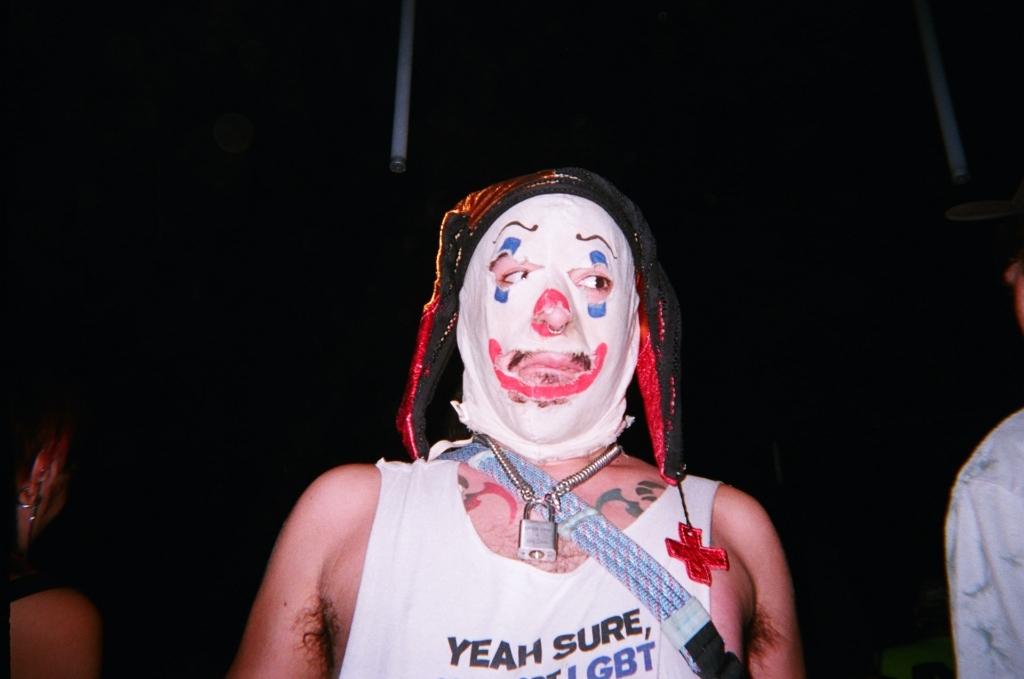
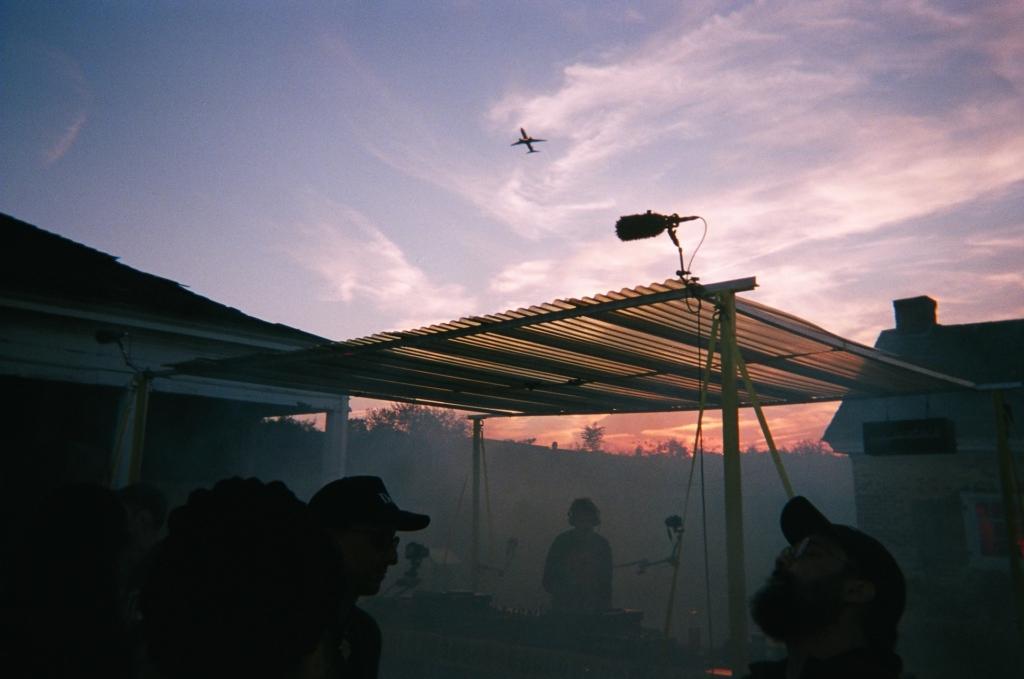
Option 5, the new stage tucked deep in a wooded path, delivered some of the festival’s most hypnotic moments. Friday night, Mia Koden crafted a forward-thinking, bass-heavy set that drew dancers into a trance. Her presence was a highlight of Making Time ∞’s fem-friendly lineup, offering representation that remains unfortunately rare in drum and bass culture. On Saturday night, Conducta, the Bristol-born “Prince of Garage,” packed the floor with a masterful blend of UK garage, grime, and dubstep. Both sets were elevated by lighting director Shugazi with longtime Making Time collaborators Klip Collective, who painted the wooded stage with sweeping beams and vivid hues.
The wooded clearing shifted into a space of reflection on Sunday during Jonnie Wilkes’ four-hour tribute to his bandmate Keight McIvor, known as JD Twitch, who passed away on the Friday of the festival from a brain tumor. A Making Time × Optimo banner hung overhead while the set offered a moment to honor his lasting impact on the festival and community. Dave P. described it as “one of the most powerful and emotional experiences of my life,” a sentiment that echoed across the crowd.
Over at the Lot Radio stage, Philly’s own JEWELSSEA made her transcendental live debut alongside Cellyssao – a performance that felt as much like a homecoming as a launch. She described the experience as an opportunity to explore new directions in her music. “With more of my songs including vocals and strings, especially my upcoming releases, it was so fun working with Cellyssao to create a live set that centered these elements,” they told me. “Every year it’s so exciting evolving my sets, and this environment is always the perfect place for me to test things out.”
The transcendental plan isn’t only in the DJs’ sets. It’s in the people working behind the scenes: sound engineers adjusting knobs, stagehands hauling cables through the crowd, bartenders keeping lines moving, photographers capturing fleeting moments. The disposable cameras caught these small, essential acts, showing the invisible labor that makes the festival hum. If transcendence is the festival’s guiding ethos, these workers – and the people documenting it – are its unseen architects.
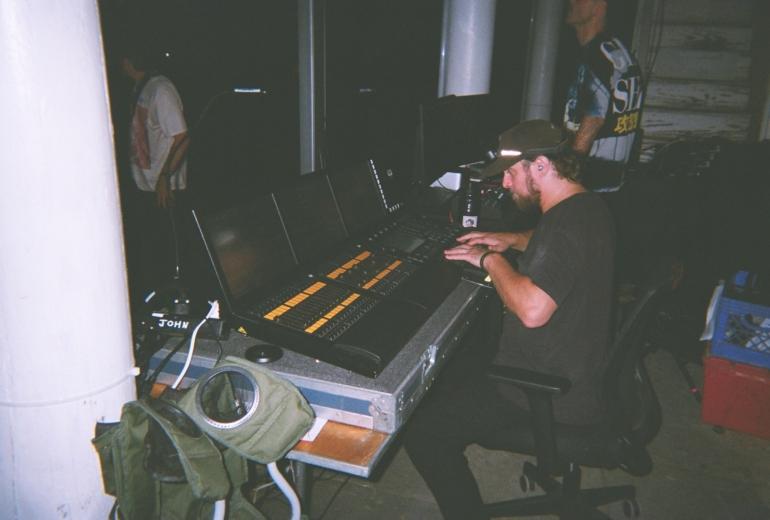
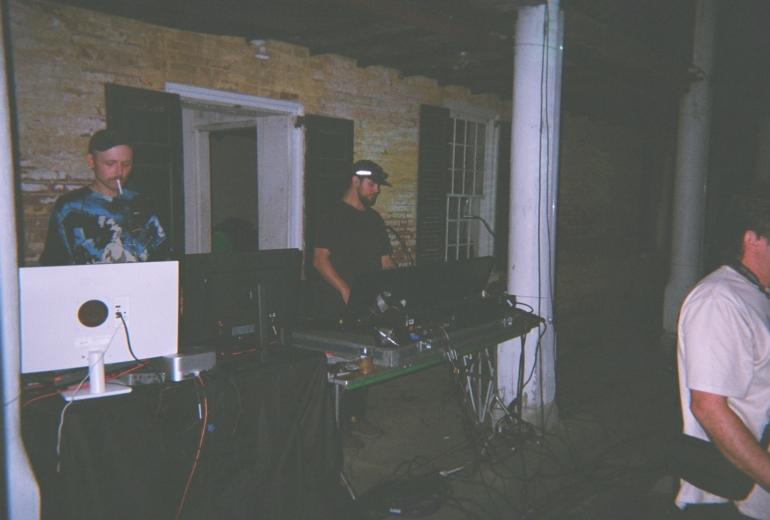
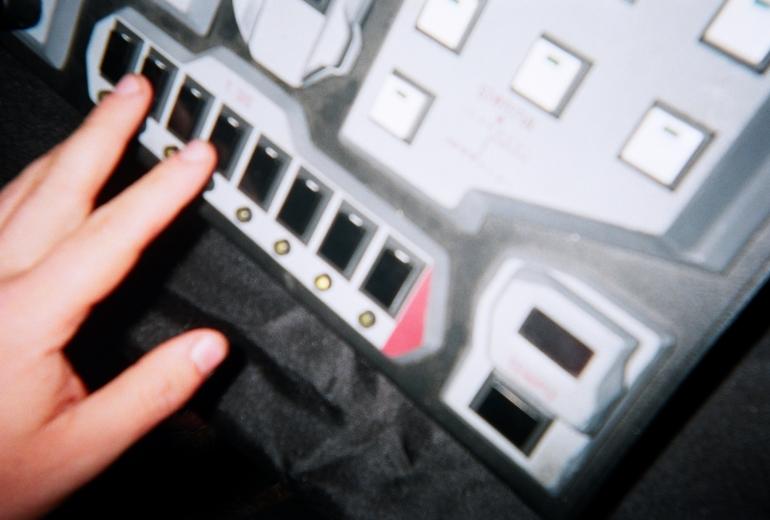
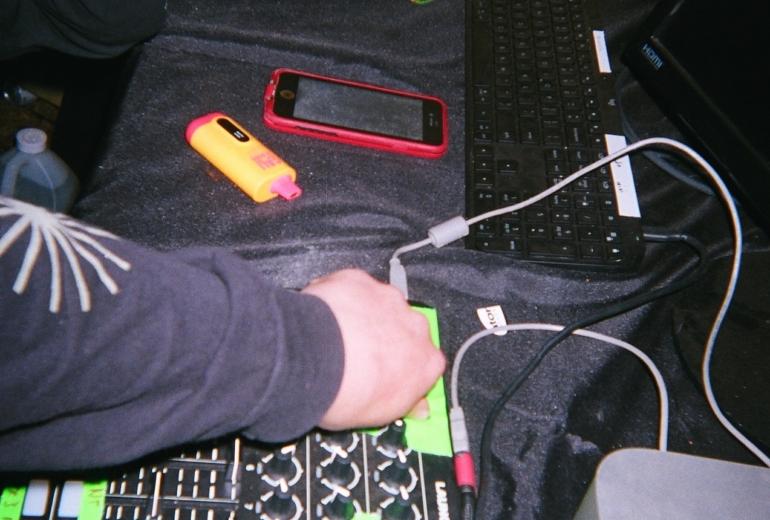
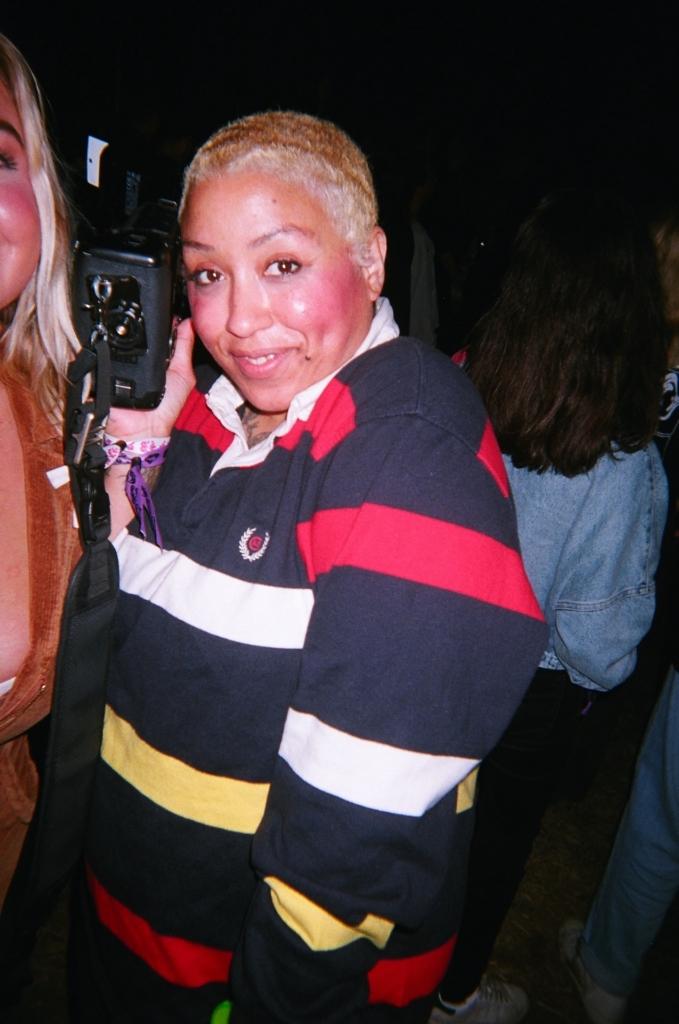
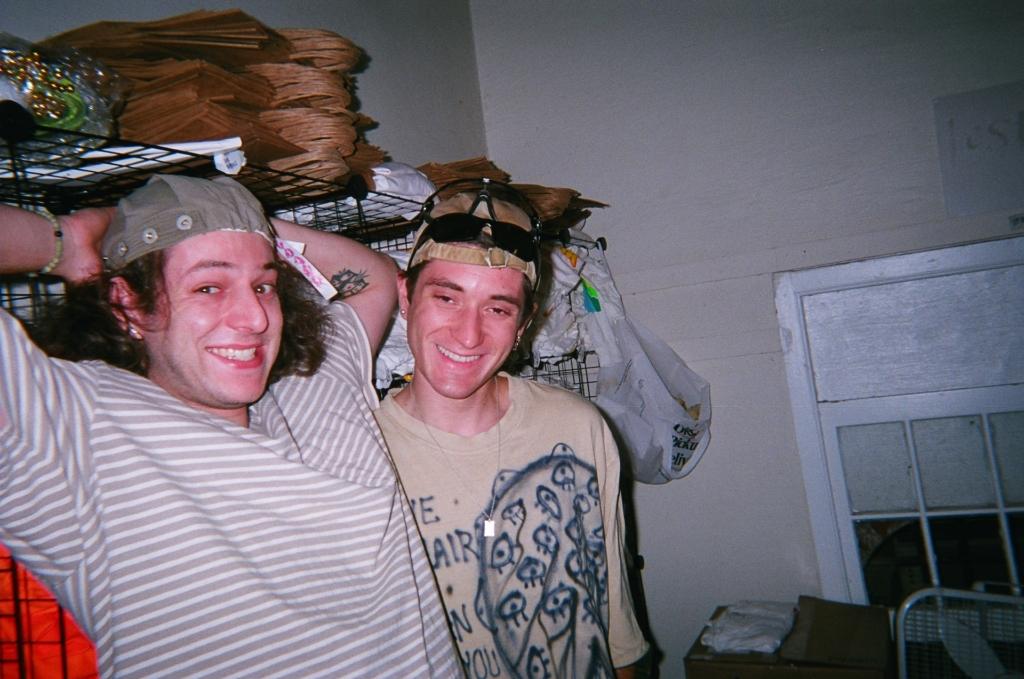

Food also became part of the weekend’s rhythm, with local vendors fueling long nights. Neighborhood Ramen drew constant lines while Pizzata Pizzeria dished out pies galore. A fruit stand added a refreshing counterpoint – cold coconuts cracked open on the spot, wedges of pineapple, all the good stuff.
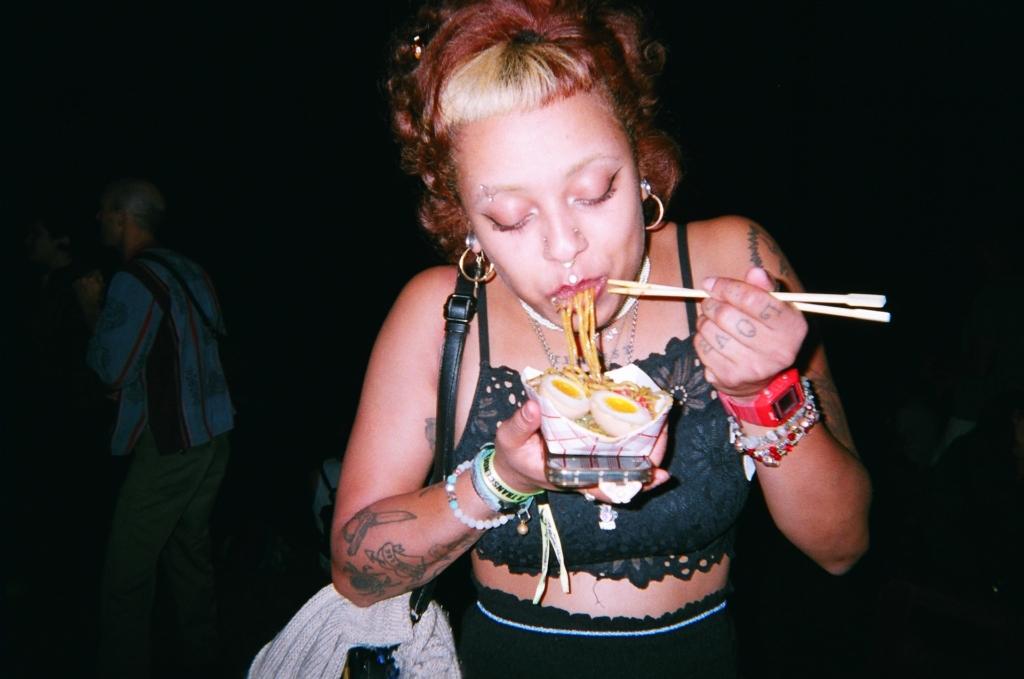
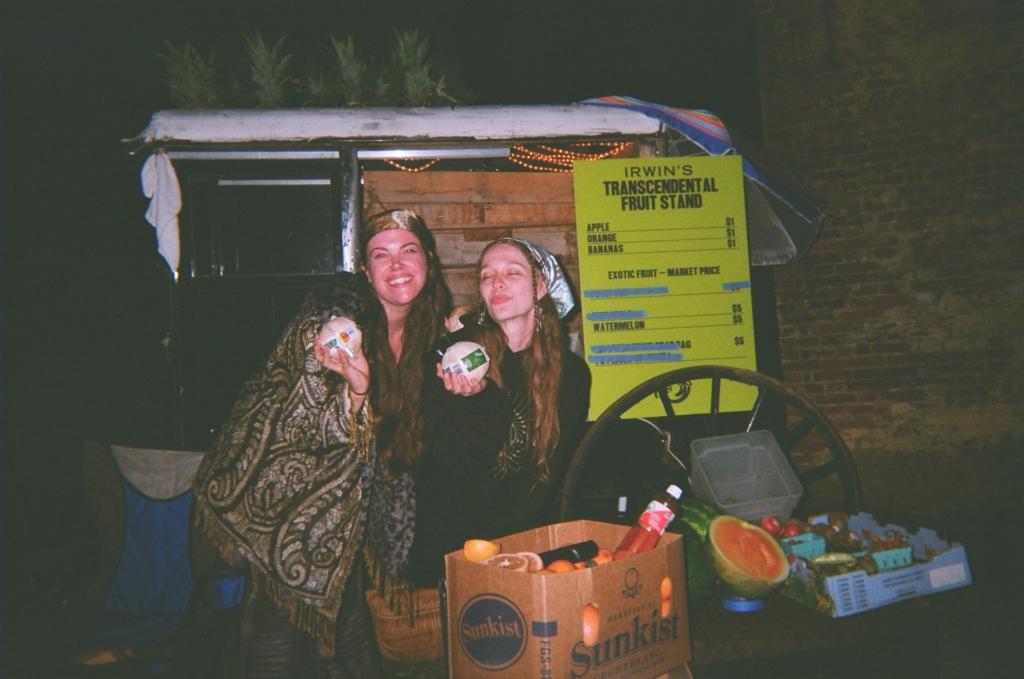
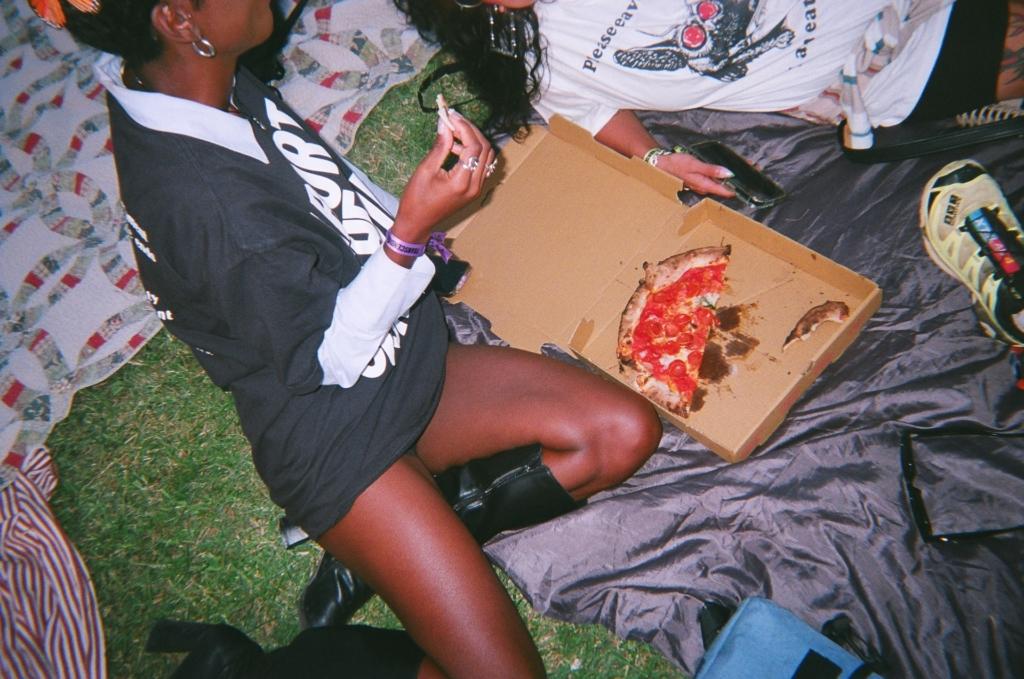
Growing Pains, Growing Spirit
With growth, of course, comes challenges. Lines at the port-a-potties and food vendors were common bothers, and some sets that once felt easily accessible now required patience.
Most attendees I spoke with didn’t seem deterred by the waits.
“It’s definitely bigger than last year, but that’s not a bad thing,” said Marissa, a Philly-based visual artist attending her third Making Time ∞. “The crowd feels good. People look out for each other. You’re not just lost in the masses like at some giant corporate festival.”
That sense of camaraderie came up often. On the dance floor, strangers made space for one another. Cigarettes and water bottles were passed between friends and new acquaintances. A group of first-timers from New York told me they had chosen Making Time ∞ precisely because it felt like “a festival for people who actually care about the music.”
In an era when many festivals feel overrun by branding, Making Time ∞ still feels human-scale, even as it grows. The fort itself helps – the stone walls and winding paths turn the site into something like an immersive playground rather than a fenced-off field.
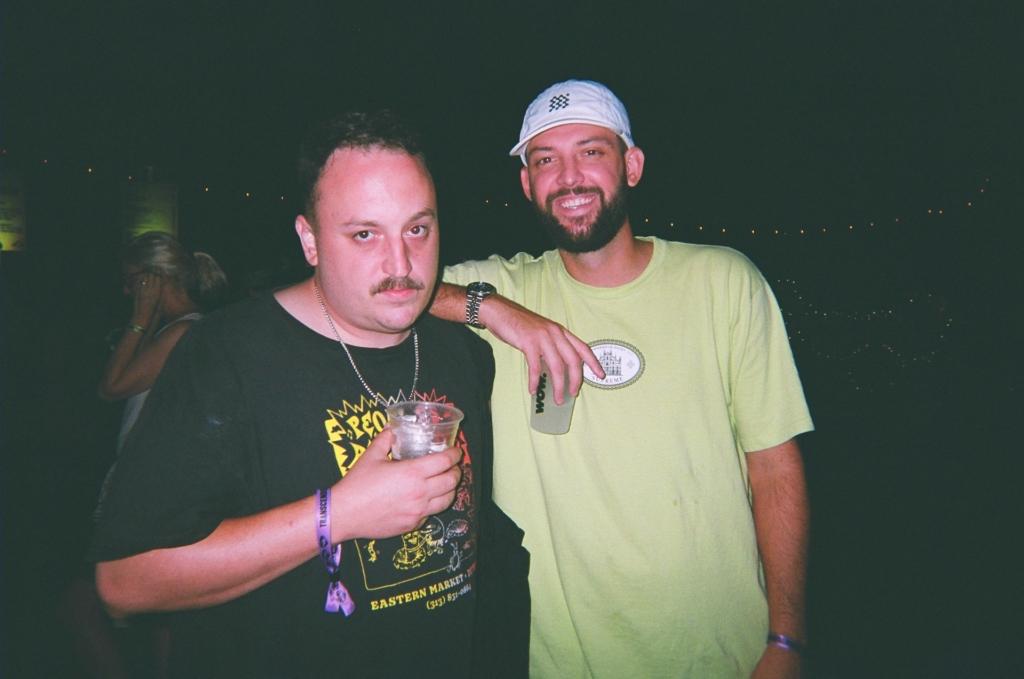
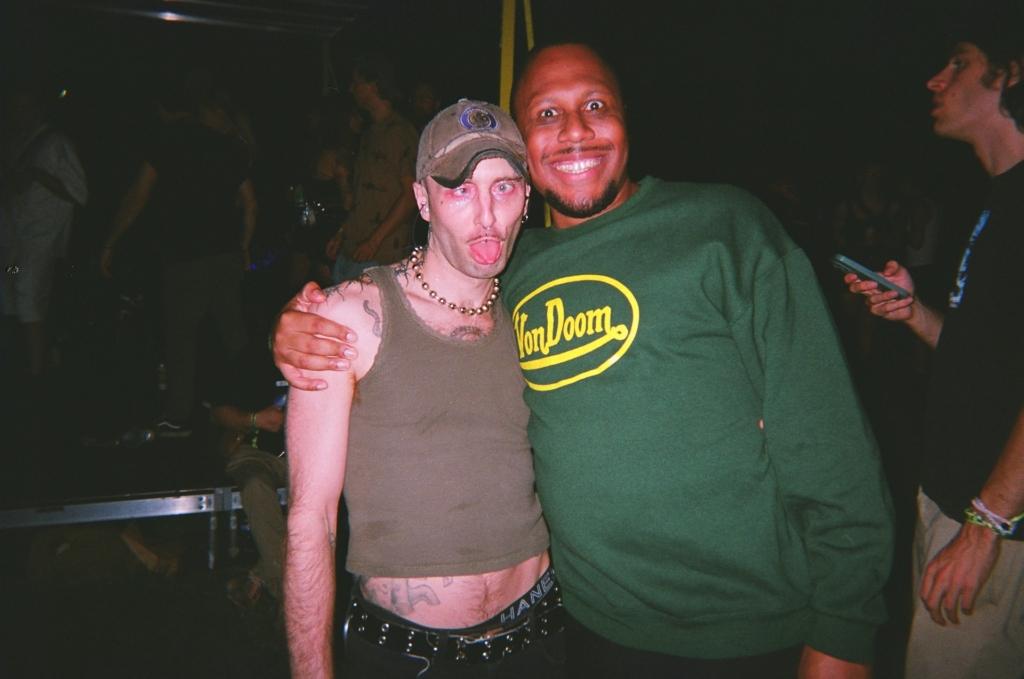
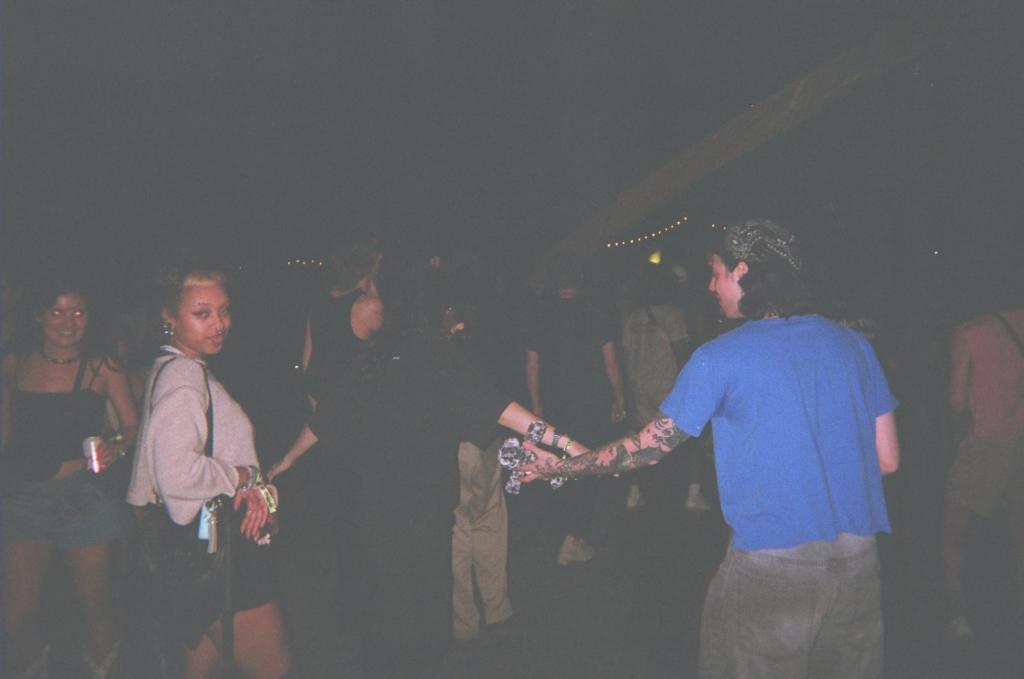
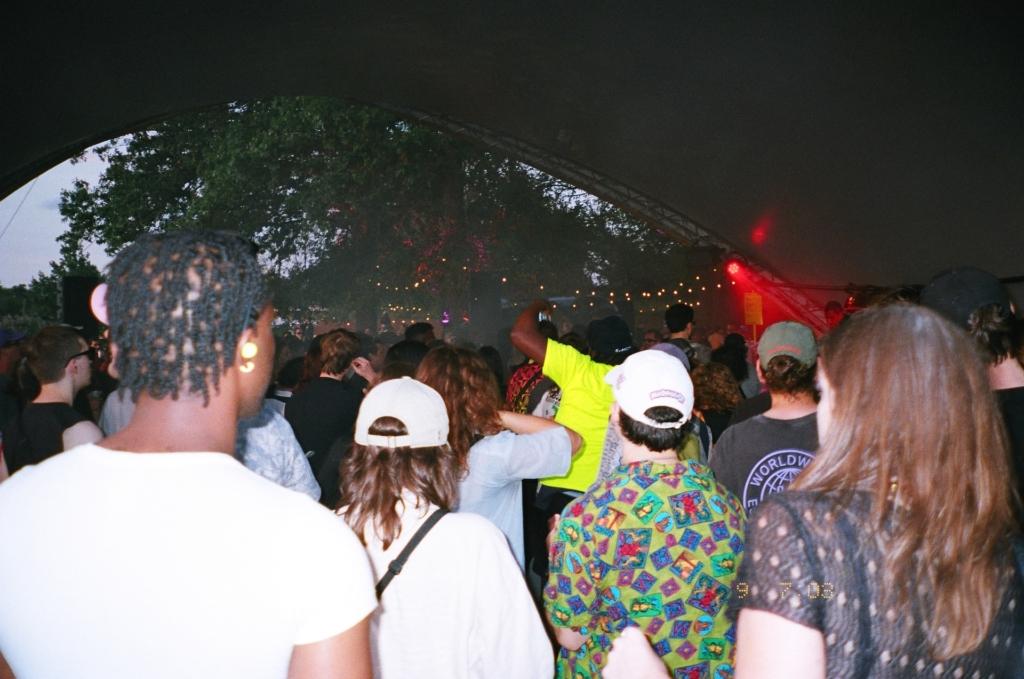
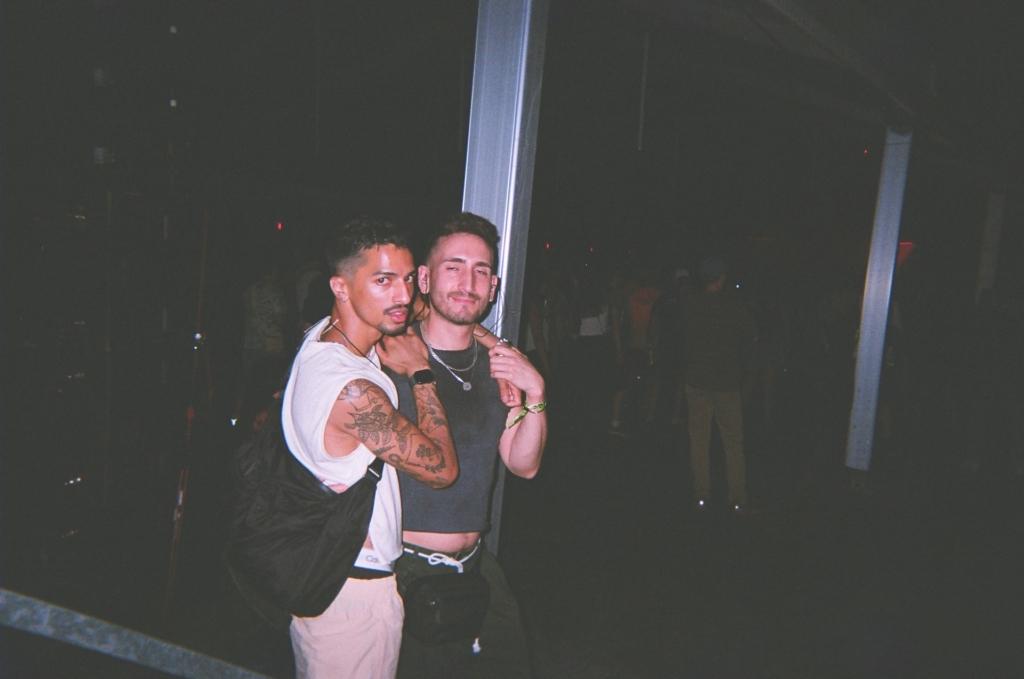
As I left the grounds on Sunday evening, the fort glowed in the distance, lasers cutting across the sky. The weekend had been chaotic at times, reverent at others, always alive, and insistently human. Even in the blurry, grainy disposable photos I collected, that energy shows: Making Time ∞ isn’t about perfection or polish – it’s about moments colliding: music and movement, strangers and friends, sound and space. In that collision, the festival found its rhythm, and for three nights at Fort Mifflin, it was impossible not to feel it.
